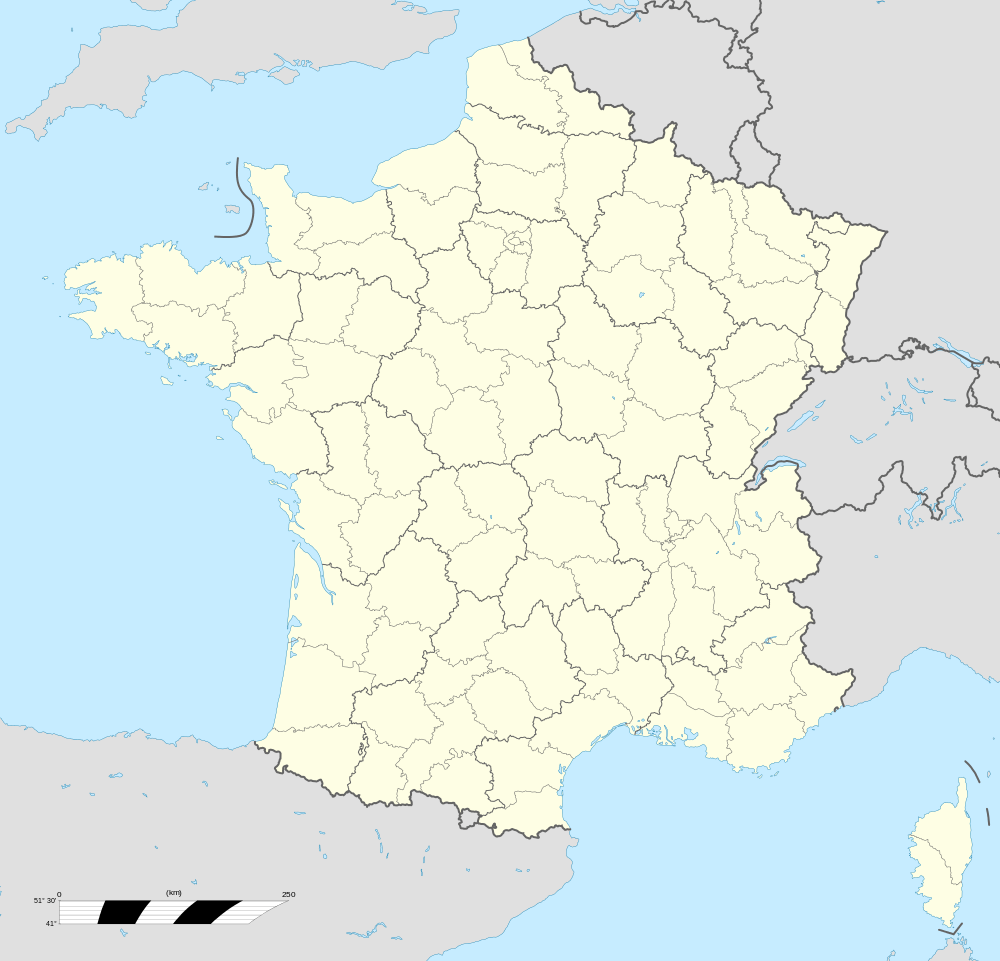La Faloise
| La Faloise | |
|---|---|
_1.jpg) | |
 La Faloise | |
|
Location within Picardy region  La Faloise | |
| Coordinates: 49°42′00″N 2°20′30″E / 49.7°N 2.3417°ECoordinates: 49°42′00″N 2°20′30″E / 49.7°N 2.3417°E | |
| Country | France |
| Region | Picardy |
| Department | Somme |
| Arrondissement | Montdidier |
| Canton | Ailly-sur-Noye |
| Intercommunality | Val de Noye |
| Government | |
| • Mayor (2001–2008) | Jean-Claude Leclabart |
| Area1 | 9.75 km2 (3.76 sq mi) |
| Population (2006)2 | 237 |
| • Density | 24/km2 (63/sq mi) |
| INSEE/Postal code | 80299 / 80250 |
| Elevation |
57–158 m (187–518 ft) (avg. 84 m or 276 ft) |
|
1 French Land Register data, which excludes lakes, ponds, glaciers > 1 km² (0.386 sq mi or 247 acres) and river estuaries. 2 Population without double counting: residents of multiple communes (e.g., students and military personnel) only counted once. | |
La Faloise is a commune in the Somme department in Picardie in northern France.
Geography
La Faloise is situated on the D193 road, on the banks of the river Noye, some 15 miles (24 km) south of Amiens.
History
La Faloise grew around a 13th-century château, which was ransacked in 1358, then rebuilt early in the 15th century by the Burgundians. It was attacked by the English and taken in 1442. The chateau returned to the Burgundians under Charles le Téméraire, on return from his defeat at Beauvais. When he died in 1477, the towns of the Somme reverted to the French crown. La Faloise was then in the hands of the Montmorency family, seigneurs of Breteuil.
In the middle of the 15th century Louis I de Bourbon married Eléonore of Roye and became seigneur of La Faloise. By the end of the century, the village had experienced much upheaval, being taken by the Ligueurs, Royalists and then the Spanish. To complete the misfortune, the population was decimated by the plague in 1668.
The French Revolution saw La Faloise rebuilt and industrialised. It became famous for the fabrication of nails. This prosperity lasted until about 1850. The village was occupied by the Germans during the conflicts of the Franco-Prussian War of 1870, the First World War and the Second World War. The church was burnt down in 1940 and rebuilt after the war.
Population
| Year | 1962 | 1968 | 1975 | 1982 | 1990 | 1999 | 2006 |
|---|---|---|---|---|---|---|---|
| Population | 335 | 342 | 305 | 263 | 242 | 228 | 237 |
| From the year 1962 on: No double counting—residents of multiple communes (e.g. students and military personnel) are counted only once. | |||||||
See also
References
External links
| Wikimedia Commons has media related to La Faloise. |
- La Faloise on the Quid website (French)